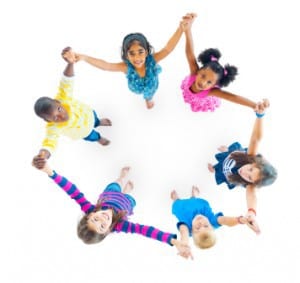Social Skills Groups
 Children have difficulties with peer relationships for a number of reasons. They may lack knowledge, miss social cues, misinterpret cues, respond without thinking, over react, etc. Children with attention disorders and learning disabilities are at particular risk for having social skill problems. They often have difficulty learning skills that come more “naturally” to other children. Children who have a shy, anxious personality style and those who are strong willed and aggressive are also at risk for problems. Parents and teachers are usually the first to identify a child who needs help with social skills.
Children have difficulties with peer relationships for a number of reasons. They may lack knowledge, miss social cues, misinterpret cues, respond without thinking, over react, etc. Children with attention disorders and learning disabilities are at particular risk for having social skill problems. They often have difficulty learning skills that come more “naturally” to other children. Children who have a shy, anxious personality style and those who are strong willed and aggressive are also at risk for problems. Parents and teachers are usually the first to identify a child who needs help with social skills.
Social skills include a wide variety of words and actions, including eye contact, smiling, listening, sharing, complimenting, admitting mistakes, controlling temper, apologizing, and so forth. Social skills are only one aspect of a child’s “EQ” or emotional quotient. Other important components of EQ are morality, empathy, optimism, problem solving, persistence, emotional awareness, and self-regulation. EQ skills are increasingly recognized as a cornerstone of mental health.
Social skills training is helpful to children who have specific social skills deficits or a more pervasive social skill learning disability. The training is conducted with small groups of children to provide maximum opportunity for social interaction, and allow for timely assistance from the therapists. The groups provide an opportunity for both structured learning and play interactions, with ongoing support and encouragement from the therapists.
Topics covered in groups at the Center for Social Success include friendship making and maintenance, sportsmanship, emotion recognition, empathy, mood management, temper control, problem solving, dealing with teasing, assertive skills, personal responsibility, and reputation rebuilding.
The groups range in size from “dyads” (two children) to larger groups of seven or eight children. Children and teens are matched by issues, gender, age, and/or social maturity. A co-therapist is present when groups have more than three children. Ongoing training groups are offered throughout the year. Children meet one hour each week and parents meet once a month.
Once children and teens are evaluated, they are appropriately matched for one of the following groups:
- Preschool Play Therapy-Boys and Girls
- 5-6 Year Old, Girls or Boys Group
- 7-9 Year old Girls or Boys Group
- 10-12 Year Old Girls or Boys Group
- Adolescent Girls or Boys Group
